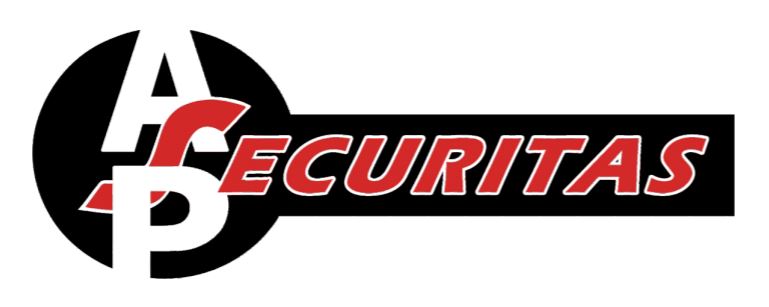
Anil Puri
CMD, APS group
A first generation serial entrepreneur, thought leader and an action catalyzer rolled into one – Anil Puri is a rare combination of a visionary, an innovator and a strategic thinker. He has used this combination to innovate and implement on-ground many new business ideas. His rich experience in various businesses has enabled him to nurture & mentor innovative ideas and scale them up.
Introduction
Occupational stress and burnout are emerging as possibly the biggest threats to the security industry. Long hours, coupled with ‘alert overload’ along with a perceived unfavorable opinion of business value are taking a toll on the industry. One of the reasons for this is that since security does not produce revenue it is considered a ‘Cost Center.’ Security operations may negatively affect profitability and throughout the years have been considered a ‘necessary expense’ of doing business. One of the ways good security was explained in the retail industry years ago was – what you don’t see on the monthly P&L (Profit & Loss Statement). Organizations tend to ‘forget’ about security until something ‘untoward’ happens and many times, ‘such untoward’ things happen because of security employee occupational stress and/ or security employee burnout. It doesn’t matter whether security is in-house or outsourced, occupational stress remains the same. Security is a profession that requires strict attention to detail & specifics and focused attention at all times. Many times, complacency tends to cause those working in the industry to miss important indicators or clues that there is a security issue. Accountability is a key factor. It doesn’t matter whether or not security personnel have limited security experience or are seasoned veterans, accountability in the security industry remains the same.
Where is the Epicenter of Pain?
Many times, security policies, protocols and procedures are unclear, not specific enough, or there is very limited training, so when security personnel complete a task or activity believing that they are operating within the scope of their job responsibilities, they later learn that they are being held accountable for a situation they were not trained to handle or a situation where they had no control over the outcome. This results in stress. Broadly the major component of the PSI which comes under intense stress is man guarding – the security guard whom we term as the ‘first responder’ is the one who faces the brunt. Others in chain and in fire lane are the entire echelon of the operations and training but they feel the heat much later. Private Security industry is facing immense pressure on account of the clients who are very demanding and is resulting in challenging environments. In day to day functioning, the occupational stress in PSI does not confine only to the security guard but impacts the entire team – security supervisor, field area officer, operations manager, branch manager, regional manager and senior level functionaries like VP and COO as well.
Anatomy of the Stress in Private Security Domain
Under the broad spectrum of surveillance activities, information protection, and risk management, the private security guards proactively prevent passage of drugs/ narcotics, violence, antisocial behaviors, thefts, and white color crimes at the workplace. Furthermore, the private security officers assist other crews during disasters and emergencies, and check doors, locks, windows, fences, and signs of fire hazards. As part of their responsibilities, private security officers screen and escort visitors, search employees and vehicles, manage car parks, provide first aid, and perform reception duties. The security personnel also offer access control, closed circuit TV monitoring services, and enforce rules and administer sanctions. Additionally, the security personnel also respond to offenses and deal with emotionally disturbed individuals, respond to calls for assistance, and attend to verify activated alarms. However private security personnel do lack adequate training. The majority of security personnel have insufficient knowledge of handling incidents appropriately. Insufficient training and failure to handle security matters properly accentuates pressure and stress on private security personnel.
Types of Stress
- Acute Stress: The most common type of stress, resulting in a ‘fight or flight’ response where symptoms disappear as soon as the stressor is gone.
- Episodic Stress: When acute stress occurs regularly and a person does not have time to recover from the stressor, which can result in a lower overall tolerance of stress and increased sensitivity to stressors.
- Chronic Stress: Long-term stress from situations where a person feels he or she does not have control over the outcome, potentially causing serious effects to mental and physical health.
Indicators of the Stress
Some of the indicators of stress which are easily identifiable could be – sudden and frequent mood changes, the feeling of agitation without being able to pinpoint why, changes in the way you talk to people, dreading the same types of activities that you have been managing before, and a sudden dread feeling of not wanting to going for work.
Causes of Stress
Some of the factors that may place a role or location at a higher risk of stress include night working or shift working, working in adverse environmental conditions such as poor weather, noise or air condition, high work rate imposed demand, insufficient rest periods between work cycles, repetitive work related activities, conflict or violence in the workplace, lack of control over work duties, unmanageable workload and lack of employee engagement or consultation. Salary deduction or unduly delayed payment of salary also have accretive impact on occupational stress.
Stressors Associated with Private Security Duties
The security work environment is one of the primary sources resulting in the work-related stress security personnel suffer. Other stressors include working variable shifts, hazards associated with the job, public expectations, lack of clear guidelines, excessive workload, lack of adequate training, exposure to violence, and dealing with intruders and unlawful. Identified several categories of stress relate to security work. The stress categories are the nature of law enforcement work, dealing with the public, and the impact of stress on officers’ personal lives. Job content and employment context are two sources of stress in the security occupation. Job content refers to the aspects of the job such as violence associated with the nature of work, working overtime, and working variable shifts. Job context refers to the characteristics of the organization and behaviors of stakeholders. Defined shift work as the work schedule outside the regular daytime working hours. Shift workers work and sleep against normal chronobiologic rhythms/ body clock which leads to a misaligned pattern of sleeping and waking. Shift workers cannot adapt to the sleeping and activity regular cycles. Shift workers sleep during the times when their physical energy is usually high and work when their physical energy is low, which leads to an adverse impact on the health condition of shift workers. Sleep disorder is one of several health problems shift workers suffer. The range of shift workers complaining about sleep disorders and difficulty to sleep is from 10% to 90%. Sleep disorder and work stress increase the risk of depression. At numerous sites, security personnel experience one or more types of threats, including the attack by a lethal weapon, for the reason of doing their job and enforcing security and order at their working places.
Impact of Stress
Stress impacts both individuals and organizations in different ways. It can manifest itself positively and lead to great improvements in service and morale or it can be negative and really damage both the individuals and the organization. In individual terms poor management of stress leads to poor decision making, fatigue, poor organization and planning, resentment, increase in conflict incidents and even physical illness. Security work is more stressful than other jobs. Stress is higher in security jobs than any other occupations. Security personnel have more illnesses and absenteeism than any other employees. Thus, security organizations could suffer more lost productivity due to attrition and job losses than other businesses because of the impact of the occupational stressors on employees’ health and productivity.
Impact of the Double Shifts
Many times, security personnel work double shifts due to their personal compulsion of poor scheduling or inadequate staffing leading to serious safety and security concerns. Security personnel who are tired, stressed or generally suffer burned out find their performance graph drops down as they:
- React more slowly than usual.
- Fail to notice things going on around them.
- Respond incorrectly.
- Show poor logic and impaired judgement.
- Are unable to concentrate.
- Are less motivated.
- Are more forgetful.
- Have a greater tendency for taking risks.
- Have reduced motor coordination.
- Have slower reaction time.
- Have impaired or reduced alertness.
- Lose cognitive and logical reasoning skills.
- Are unable to process communications.
Poor job performance is many times more apparent when tasks are repetitive such as checking IDs or logging trucks in a vehicle gate, which are common security functions. If a security breach occurs because of any of these reasons, the implications could be fatal. One single security incident may occur because of a simple oversight or a vulnerability that was overlooked or was enabled by a failure to promptly detect malicious activity in progress. In many cases, inexperienced, stressed or fatigued security employees are making these mistakes, but the results take a toll on the entire industry. An unfortunate security incident can harm the reputation of the organization, affect customer attrition and cost exorbitant legal fees. The occupational stress can be defined as the harmful physical and emotional responses that occur when the requirements of the job do not match the capabilities, resources, or needs of the worker. Security personnel work under a constant stressful situation, which leads to several negative outcomes like depression at workplace, elevated level of post-traumatic stress, headaches and back pain, neck and shoulder pain, heart diseases, and anger. They also suffer adverse psychological, physiological, and behavioral outcomes from work-related stress.
Strategies for Managing Occupational Stress and Job Performance
The duties of a security guard require constant vigilance. Individuals need to stay focused on an ongoing basis, sometimes over the course of long hours, incidents can occur that leave the security guard feel frustrated and overwhelmed. More so, the security guard can find themselves needing to deal with the everyday stress of enforcing rules and protecting property. Whether you are a security company supervisor managing a force of security guards or you are an individual security guard trying to protect the security company that you work for and its clients. Adequate training, proper staffing, better scheduling techniques, rotation of shifts, active grievance handling mechanism, timely disbursement of salaries, conflict resolution mechanism and in house trauma handling centers. Theoretically, there are two categories of stress management interventions – Reactive and Pro-active. The reactive is the clinical interventions including specific techniques such as psychological counseling. The proactive intervention is to enroll security personnel in training programs to learn, develop, and apply skills and capabilities to help them manage occupational stress safely.
Conclusion
The problem of occupational stress has globally become a critical issue in PSI upon which organizational goals rotate. Numerous studies have established that there is a significant relationship among occupational stress, attitude to work and psychological well-being of the security personnel. It has been established further that many a times, the occupational stress has led to the development of negative outcomes for the security guards. Degradation of general well-being as well as levels of satisfaction and commitment to organization has each been identified as a result of the employee experiencing occupational stress. Hence, the occupational stress is harmful to security personnel, PSAs and PSI as a whole and needs to be looked into with deep concern.
